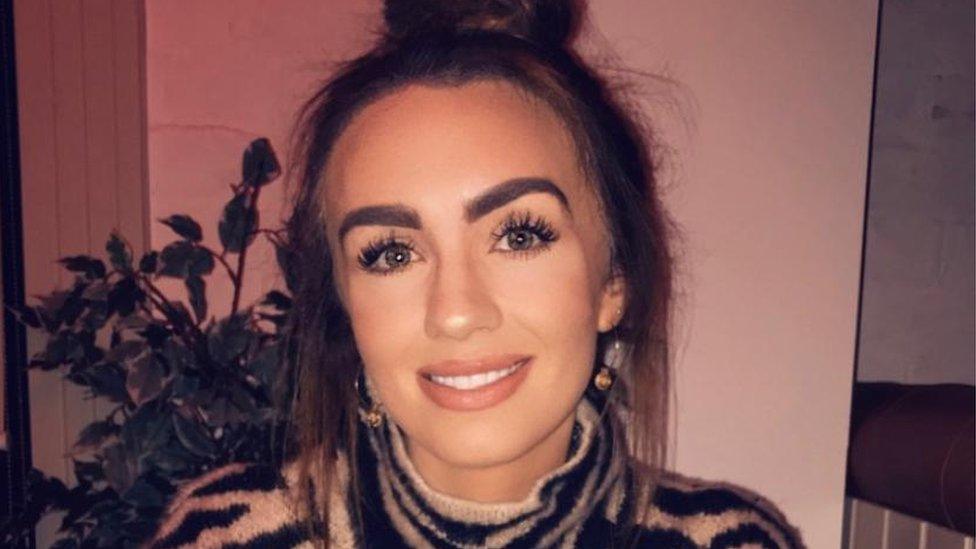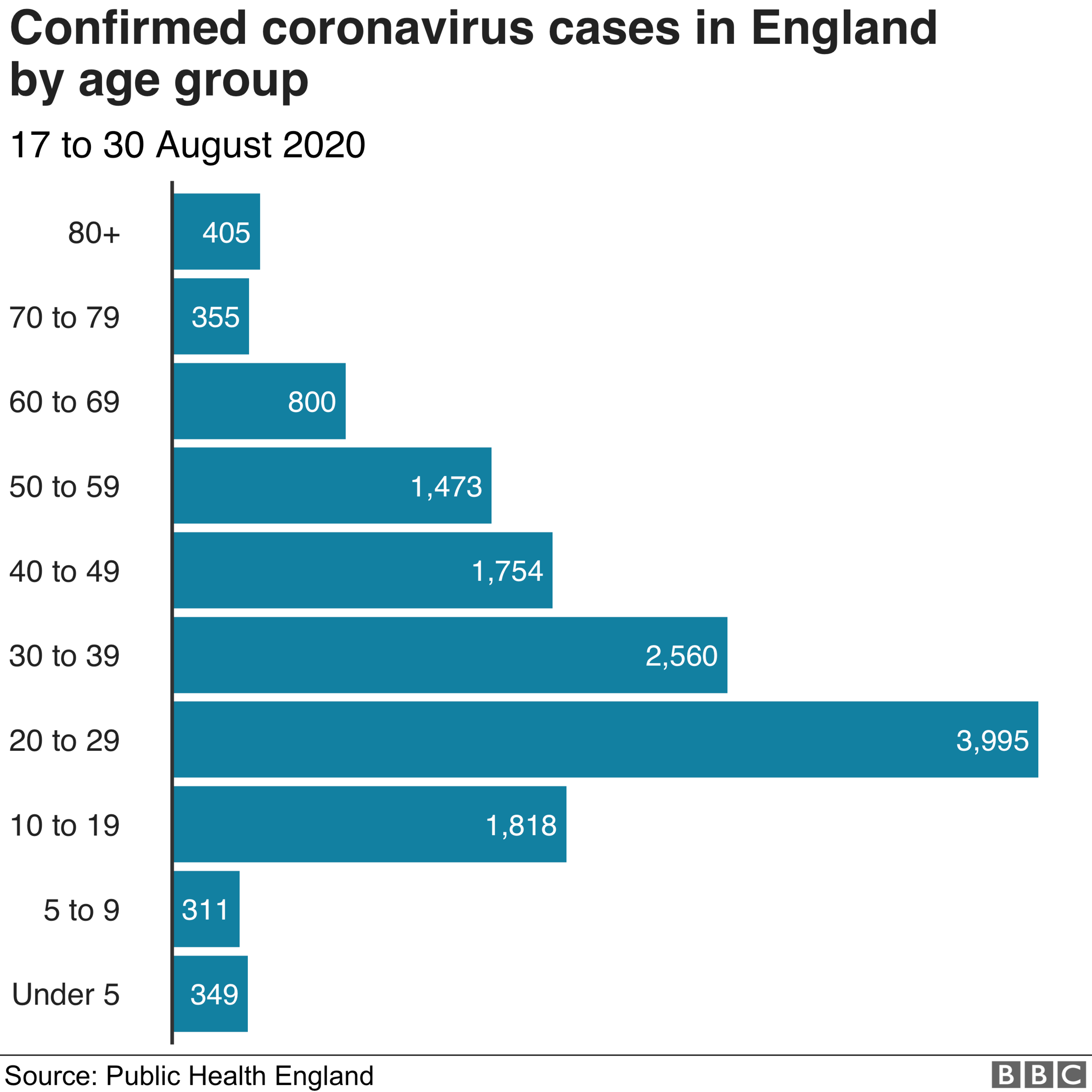Coronavirus: ‘It’s unfair to blame young people for virus rise’
- Published

Are young people to blame for the rise in UK coronavirus cases? That's what the health secretary told us this week.
Matt Hancock told Radio 1 Newsbeat listeners: "Don't kill your gran by catching coronavirus and then passing it on."
But many are unhappy with being singled out and say the government has been giving "mixed messages".
Sophie Morgan hasn't seen her grandparents since February and is taking care not to spread the virus.
The 23-year-old says other people her age are doing the same.
"I've cancelled a holiday to Italy and try to limit how much I need to go outside, even to the supermarket," she says.
"There's nothing that I'm doing which puts me at risk. Even with a nail appointment I'm wearing a mask."

Sophie feels the government waited too long to make face coverings mandatory
Linzi Cormack has also changed her habits and is following the rules.
She's really cautious about touching door handles and surfaces.
"I use my feet to push them open and don't touch my face as much.
"I'm just cautious about touch points."
Her life has become more online-focused because of the virus and not wanting to "be around other people".
"I've decided to shop online all of the time and stop going to supermarkets."

"It's not about catching it myself, it's about protecting others," Linzi says
And as for the weekly drink in the pub - the higher number of positive cases mean Linzi isn't visiting as much as she normally would.
"I've been once since it reopened, and not for a long amount of time because I felt really uncomfortable."
Tom Hardy, who works in a school in Leicestershire, is a keen traveller but has stopped visiting different parts of the country.
"Mainly to protect the people around me. I'm also in a fairly high-risk job so I don't want to put my colleagues and students at risk."

Tom says the rules can cause a divide in friendship groups as some people are tired of the restrictions
Like Linzi, the recent rise in cases has forced the 20-year-old to take more precautions.
"I've started shopping online a lot more, and not going to places as I did much outside of work."
Linzi isn't surprised by the focus on young people because there are some "who feel they are untouchable" when it comes to the virus.
"Especially when people start drinking more, they become a bit careless."
But she says generalising is wrong and "it's unfair to single out young people" with some older people "not wearing masks or social distancing" in shops.

Sophie says the constant changing of rules may be to blame for people being confused and not always following them.
"Every update was confusing which means the rules are confusing and leave you thinking 'are we doing this now?'"
She no longer pays attention to what the government says and says she is going to continue to wash her hands and keep her distance from people.
Tom disagrees with Sophie and says the government's been "as clear as they can be".
He says the young people visiting restaurant and bars have been encouraged by the government to do so through schemes like Eat Out to Help Out.
And he adds it's important to consider the role mental health might play when someone breaks rules.
"Especially if you live at home with your parents, you can feel quite isolated from the people you used to spend a lot of time with.
"I'm not saying it's OK, but there are factors to suggest why people would."
Tom says he's followed all of the rules - with the exception of seeing his dad during lockdown.
"I made sure precautions were in place, but looking back, I probably shouldn't have done that."

Starting university next week, Aisha says she needs to be “extra careful”
Aisha Mirza says there's been mixed messages from the government.
"The rules haven't been clear. By saying local lockdowns, but keeping some things open, it defeats the purpose because you are still mixing with people."
She says the government shouldn't be surprised by a spike after Eat Out to Help Out.
"We are used to meeting people regularly.
"So when the government starts making these things available to us, we're obviously going to make use of that right away," she says.
The 18-year-old adds: "You do get minorities in all groups that mess about and don't do things right."
Despite being "fed up" by restrictions, Sophie, Linzi and Tom and Aisha all agree about the threat of coronavirus and remain worried about the rising numbers in recent days.
"I think it's important to be worried and be cautious because there's people in my family who need to shield," Linzi says.
"It's more for other people. I couldn't live with myself if I passed it on to someone and they got really ill, it's horrible."
Tom's job is a cause for concern because of difficulties in keeping a distance.
"There's 1,200 people in the building, so it's hard to maintain a social distance from everyone," he adds.
But he will "be careful" and continue to see his family unless told otherwise by the government.
With no vaccine yet and the virus being quite new, Sophie is still worried.
"It's unheard of before. Everyone else might be getting on with it, but in the back of your head, you're still wondering."


Follow Newsbeat on Instagram, external, Facebook, external, Twitter, external and YouTube, external.
Listen to Newsbeat live at 12:45 and 17:45 weekdays - or listen back here.